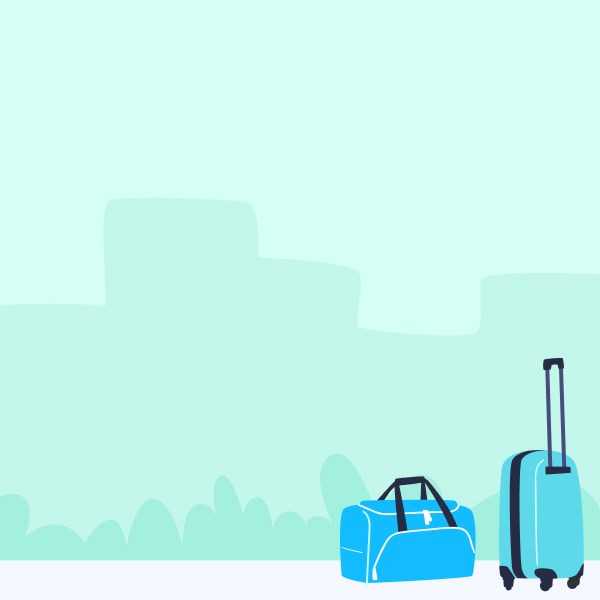-
Ministry of Health Staff Supporting Displaced Persons in Hotels
If you have been displaced from your home due to the security situation and are staying in a hotel, the Ministry of Health is committed to ensuring you receive medical… -
Health Maintenance Organization (HMO) Services for Internally Displaced Persons
If you’ve been evacuated and are currently staying at a hotel, we’ve put together answers to common questions about the health services your HMO provides during this time. -
Maternal and Baby Care and Vaccinations for IDP
If you’ve… -
Child Development Services for IDP
If you are evacuated and currently staying in a hotel, we have gathered questions and answers about child development services for IDP. -
Health Care for IDP Aged 65 and Older
If you are evacuated and currently staying in a hotel, we have gathered questions and answers about services for older adults. -
Mental Health Services for IDP
If you are evacuated and currently staying in a hotel, we have gathered questions and answers about accessing mental health services. -
Child Safety in Hotels
Keeping young children safe in hotels -
Making a Hotel Room Safer
If you are internally displaced people who are staying in a hotel, we gathered some recommendations to help you keep the children at the hotel safe. -
Ministry of Health Hotline
If you are staying outside your home due to the Swords of Iron war – the call center for internally displaced people of the Ministry of Health (Kol Habriut) is…
Making a Hotel Room Safer
If you are internally displaced and are staying in a hotel, we have gathered here for you some tools and recommendations for keeping your children safe in the hotel.
Bedroom safety
- Babies should sleep in a bed of their own (either a crib or a cradle) and not in the same bed as their parents or siblings.
- A boiling kettle should be kept out of children's reach.
- Electric outlets should be covered.
- Medications, cleaning supplies and toiletry products should be stored in a high place out of children's reach.
- If there is a balcony in the room, make sure the door to the balcony is locked, that there are no objects that children can climb to go over the railing and that the children do not go to the balcony without adult supervision.
- Small children should only be bathed under adult supervision.
Dining hall safety
- The food should be age-appropriate. Babies should be served soft or mashed food and toddlers should be served food that has been cut lengthwise and into small bits.
- If any of the children has any food allergies, you need to request meals that are suitable for them, and to remind your children that they should not eat food that they do not know without asking for parental permission. In any case, you should keep an EpiPen syringe in hand.
- Make sure that the children do not go near food warmers or hot water dispensers.
- The dining room floor tends to be slippery. It is dangerous to run in the dining room.
- Despite the plentiful menu offered by dining room buffets, you should follow a healthy and balanced diet while staying at the hotel.
Safety in the game room and at the playground
- The game room contains games for different age groups. Therefore, it is important to make sure your children are play age-appropriate games.
- Make sure that there are no dangerous sharp or small objects in the environment that may cause injury or asphyxiation.
- Non-inflated balloons and popped balloon shreds are dangerous for children! They may cause asphyxiation.
- In the playground, make sure that the children do not go on fixtures that are not age-appropriate for them.
- Children love to climb on playground fixtures, but not every fixture is intended to be climbed. Do not let them climb on fixtures that are not intended to be climbed.
- If the children have the option to ride a bicycle, it is an excellent activity, just make sure that they wear a helmet.
Swimming pool safety
- Swimming is only permitted when there is a lifeguard on duty. Do not jump into the pool except in places intended for jumping.
- Children under 6 years old and children who do not know how to swim require constant adult supervision, even when they are in the toddlers' pool.
- Keep your eyes on your children and avoid distractions. Your phone can wait in the bag.
Leaving children alone
Children over 9 years old can be left unsupervised in the room or the public areas:
- For short periods of time, and according to their capabilities.
- The room's door should remain locked and the children should be instructed not to open it for strangers.
- Remind the children what they should do in case of emergency, such as if there is a rocket siren or in case of fire.
- Call them frequently to make sure everything is fine.
Younger children
- Can be left under the supervision of a sibling older than 12 years old, depending on both children's capabilities.
How to make a hotel room a safe home? – Graphic file (Hebrew)

